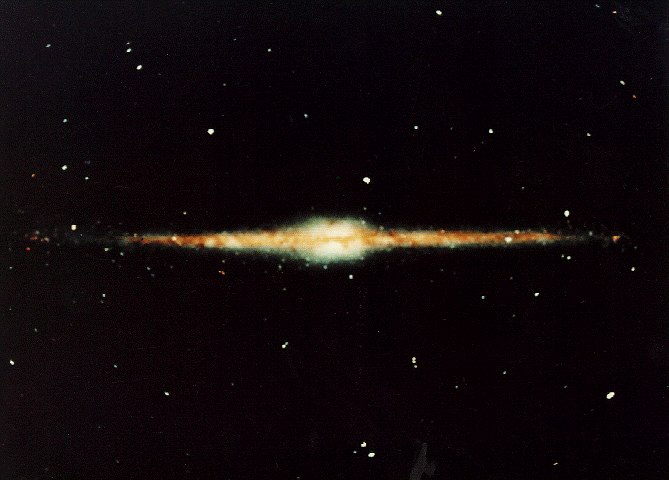

This image of our galaxy, the Milky Way, was taken with NASA's Cosmic Background
Explorer
(COBE)'s Diffuse Infrared Background Experiment (DIRBE), one of three COBE scientific
instruments. This never-before-seen view is a combination of data gathered with DIRBE at
intervals within the first six months in orbit and released in April 1990. It shows the
Milky Way
from an edge-on perspective with the galactic north pole at the top, south pole at the
bottom and
galactic center at the center. The picture combines images obtained at several
near-infrared
wavelengths. The dominant source of light at these wavelengths is stars within our galaxy.
Even
though our solar system is part of the Milky Way, the view looks distant because most of
the light
comes from the population of stars that are closer to the galactic center than our own
Sun.
The COBE spacecraft was launched on November 18, 1989, on board the last NASA-owned
Delta rocket from Vandenberg Air Force Station, CA. COBE was specifically designed to
study
the radiation from the Big Bang, believed to be a remnant of the primeval explosion that
started
the expansion of the universe, and to measure the diffuse infrared and microwave
background
radiation, which includes the primary remnant of the explosion.
![]()
The Milky Way (a 360 degree panorama) as seen in visible light.